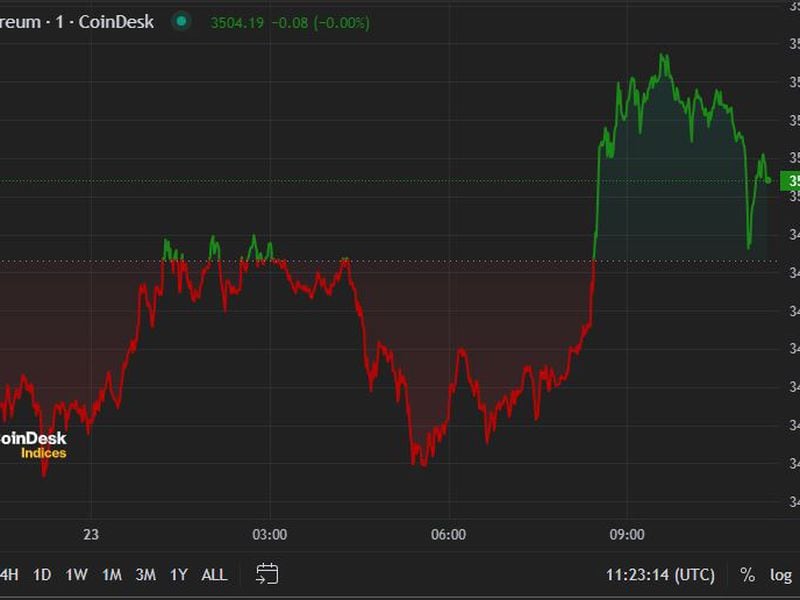This article originally appeared in First Mover, CoinDesk’s daily newsletter, putting the latest moves in crypto markets in context. Subscribe to get it in your inbox every day.
Ether was little changed after the SEC’s approval for ETH ETFs in the U.S. on Monday. The second-largest cryptocurrency traded around $3,500, just 0.2% higher than 24 hours ago. Still, it outperformed the wider digital asset market, which is 1.3% lower as measured by the CoinDesk 20 Index (CD20). Some analysts predict that the ETFs’ listings could drive the ether price up to $6,500, though inflows are not expected to be nearly as high as for their bitcoin counterparts. Steno Research predicts that the ETFs could see $15 billion-$20 billion of inflows in the first year, the same as bitcoin ETFs have taken in in just seven months.
Bitcoin retreated after retaking $68,000 on Monday, dipping to near $66,000 in the early European morning as Mt. Gox moved its latest tranche of BTC to Bitstamp. Transfers of BTC as part of its repayments to creditors have previously led to sell-offs in the crypto market. At the time of writing, bitcoin sits just below $66,700, around 1.1% lower than 24 hours ago. In early July, Mt. Gox began repaying creditors affected by a 2014 hack. Over $9 billion worth of BTC and $73 million of bitcoin cash (BCH) will be distributed to traders in the coming months.
Citi upgraded its rating for Coinbase shares to buy from neutral and raised its price target to $345 from $260. The bank said the stock could respond positively to an improving regulatory environment as a result of November’s U.S. elections and increased confidence in its legal strategy following the overturning of the Chevron Deference Doctrine by the Supreme Court. “We believe the risk/reward setup for Coinbase, particularly as to its defense against the SEC lawsuit, has improved markedly in the past few weeks,” analysts led by Peter Christiansen wrote. While the stock has already risen 52% year-to-date, Citi notes that the upside opportunity from a more benign regulatory backdrop could be too large to ignore, “potentially unlocking sidelined institutional capital, investment, and increased crypto-native and traditional finance collaboration.”
The chart shows the weekly net inflow of XRP into wallets tied to centralized exchanges.
Last week, exchanges registered a net outflow of $94.75 million in XRP, the biggest since April.
Outflows are said to represent an investor bias for long-term holding strategy.
Source: Coinglass
– Omkar Godbole


























